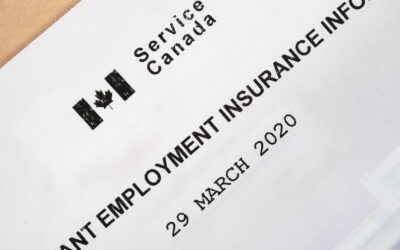Insolvency Trustee FAQ

Most asked questions regarding insolvency trustees
A Trustee is a responsible party appointed by the Superintendent of Bankruptcy to administer an insolvency process. Trustees have a wide range of duties and responsibilities, including helping debtors and creditors understand their rights under the law; assessing assets and liabilities; developing plans for paying debts through liquidation or restructuring; administering payments to creditors in accordance with approved plans; maintaining records of all activities throughout the process; and providing oversight over insolvency Ontario proceedings.
Insolvency Trustee FAQ
Trustees are required to be impartial and maintain strict confidentiality, which may lead to questions about what they can do in certain situations. Some of the most frequently asked questions regarding insolvency Trustees in Ontario include:
What is an insolvency Trustee?
An insolvency Trustee is a professional appointed by the Superintendent of Bankruptcy to administer insolvency proceedings. The Trustee’s role includes understanding their rights under the law; assessing assets and liabilities; developing plans for paying debts through liquidation or restructuring; administering payments to creditors in accordance with approved plans; maintaining records of all activities throughout the process; and providing oversight over bankruptcy proceedings.
Is an insolvency Trustee impartial?
Who can be an Insolvency Trustee?
What does an Insolvency Trustee do?

By getting expert assistance from an Insolvency Trustee, you can take back control of your finances and get on track to achieving financial freedom. Don’t let debt weigh you down.
Articles we prepared on Insolvency Trustees in Ontario
Are you dealing with Debt problems? Solutions are here.
Debt Problems: Introduction Debt problems are not always sudden. Even so, it's a fact that financial difficulties can arise suddenly and unexpectedly, like the loss of a job or a vehicle breakdown. Debt problems can be of all sizes, from being a few hundred dollars...
A list of alternatives to CERB repayment if you cannot pay it back
A list of alternatives to CERB repayment if you cannot pay it back What is CERB? COVID-19 has caused a great deal of economic stress all over the world. Amid this pandemic, a financial support program called CERB - Canada Emergency Response Benefit was introduced in...
Things you should know about bankruptcy and involvency
Sometimes it is extremely difficult to discuss and come to terms with financial situations, especially if you are in significant debt. However, in Waterloo, there are some very good insolvency consultation firms. They can help you face the reality of your particular...
What are the benefits and disadvantages of filing for bankruptcy?
Bankruptcies can affect a person's credit and personal finances for several years, but it is a very good option for relief from debt for some individuals. Each client's circumstances are unique, and an insolvency trustee is someone to consult. Bankruptcy filings are...
How to Get Out of Debt while avoiding Bankruptcy
Financial issues are one of the most difficult things for adults to deal with. It can result in sleepless nights, relationships issues, and constant worry. Perhaps you have considered bankruptcy as an option, which is very viable.If you have not already tried it,...
Mistakes you should avoid when filing for bankruptcy
The Bankruptcy and Insolvency Act is designed to help people be discharged from excessive debt and give themselves a fresh start financially. If you think that bankruptcy might be the answer to your problems, consult with our bankruptcy trustee in Waterloo. Before you...
What is the difference between bankruptcy and insolvency?
Frequently the terms bankruptcy and insolvency are used interchangeably. However, they actually mean different things legally. Insolvency is financial distress. Bankruptcy is a legal process where someone applies for relief from debt. So, it is possible that you...
Is it possible to file bankruptcy for debts not due?
It seems unbelievable that someone can have debt and not know about it. After all, you used your credit card or signed a contract. It is possible that you incurred the debt sometime ago or thought the issue was resolved but suddenly you receive a notice that you...
Myths and Truths about Bankruptcy
There are many misconceptions about bankruptcy and personal insolvency. These situations can seem too large to handle on your own, and that is probably the truth. Speak with a licensed trustee in bankruptcy in waterloo to thoroughly understand what these actions can...
Will I Lose My House if I Go Bankrupt?
Home ownership is part of the Canadian dream. But a job loss, divorce, health crisis or other unexpected emergency can turn that dream into a nightmare if you find yourself unable to keep up with the bills. If that situation sounds familiar, you may be asking...
A Consumer Proposal is your Chance
for a Fresh Start.
1-800-665-9965









